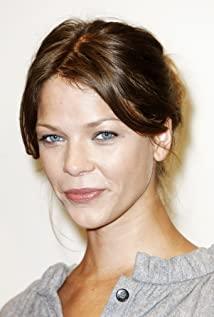Compilation rationale/evidence: imagination, associative power. awesome.
Compilation stubborn/contradictory: desperately speaking in the boring. Pretentious/reliable.
This is a belated dictionary dedicated to the awesome Suskind, the genius bastard Tikway, and the tragic legend Grenouille.
Paraphrase Context:
Eighteenth-century France consisted of these elements—
Rousseau, Diderot, and the Encyclopaedia, Rousseau said: The progress of science and art has degraded morality.
Rousseau once lived with the inn maid, Therese Levasser, and gave birth to five children, who were sent to the nursery one by one.
Grenouille's mother, 25, suffering from gout, syphilis and mild tuberculosis, has given birth to four children. "She hopes to live a long life, maybe another five or ten years."
"At night, whether it's fish maw, or raw meat, or anything else, it's all shoveled away, loaded on carts, transported to cemeteries or dumped into the river."
Keyword 1: Grenouille
fatherless Trauma: In this legend, the genius protagonist Grenouille faced the absence of his father's role since birth, but this same routine setting as the father's revenge/revenge in Chinese martial arts has produced a completely different result - Grenouille's growth It is not based on finding the father or taking revenge for killing the father - this may be due to the double lack of parental roles, which prevents the legend from developing according to the plot of Chinese martial arts, and thus turns: asexual.
The aesthetics of moving the "knife":
the first knife - the fish-chopping knife. The knife from the biological mother cuts the umbilical cord, which not only annotates the legend of the story, but also metaphors the birth of a genius and the burial of the seeds of hatred. Whether it's an angel or a devil, Pandora's box is opened.
The second knife - the baby cry. The knife from the son cut off the mother's life. Life begins in one's own cry and ends in the cry of others. For Grenouille, there may be another metaphor.
The third knife - vitality. Grenouille's stubborn life force succumbed to or died not only of various diseases, but also of all those who had lived with him for a long time: Madame Galar, the widow who did not want to live, died on her own when she was 80 years old The most unimaginable main palace hospital (in the film, after getting the money and dying with a robber's knife), Grima - this orangutan-like "divine beast" fell into the water with his money and died, Baldini - Armed with the secrets of 100 perfume recipes that collapsed with the house in his sleep, Count de La Tayard (no such person in the film) - with his NB gas theory disappeared forever in the snowy mountains.
The fourth knife - a dull iron rod. Blunt and sharp weapons in the visual world easily changed roles in the olfactory world. Grenouille scraped grease with a sharp knife and killed targets hit by his sense of smell with a blunt iron rod, including the twenty in the ancient city of Grasse. Five girls. The last one is Lorre.
The fifth knife - Rixis' Blade of Vengeance. In the grand group P scene, Lorre's father, Rishis, rushed to the guillotine with a knife, but what appeared was not revenge, but the return of a father in a sense (Rishis calls out affectionately: "My son .").
The sixth knife - the hanging lock. Grenouille returns to Paris, where Drew (who sleeps with the mistress) is hanged as the murderer.
The seventh knife - perfume. Grenouille returned to Paris and killed himself with his perfume.
Sexless and loveless: Grenouille doesn't speak until he is five years old, which is characteristic of all geniuses - dull on one hand, and deified on the other. The girl on the Rue de Seine aroused not sexual enlightenment, but scent enlightenment. He seeks "the scent of those exceedingly rare people who inspire love. These people are his victims". But he can never be satisfied in love, but only in hatred, in being hated.
The asexuality caused by the absence of a father may be one-dimensional, but the lovelessness claimed by the motherless is indeed two-fold. Without love, there is no love. Grenouille had never experienced love, and never aroused the love of others, but during his three months in Grasse, he stood beside the city walls in love and deeply enjoyed the bliss of love. The proposition then turns into this: Possession and loss is more worth pursuing than simply giving up both, since Grenouille has given up in his life, but never possessed and lost, so he tries. Therefore, possessing fragrance actually means possessing love.
Ah Q, Rousseau, and Gasimov: Grenouille, Rousseau, and Gasimov (who, of course, actually belonged to the 15th century) together constituted 18th-century France.
The difference between Grenouille and Gasimov lies in the fact that the former possesses miraculous genius, and therefore exists more in the legendary storyline for readers, while the latter may be more realistic; at the same time, the former seems to be evil, while the latter Clearly toward good; the same is the refusal of both.
Grenouille differs from Rousseau only in the direction/area of using genius.
In fact, Grenouille is a completely contradictory Ah Q. Ah Q is (on the surface) comedy's villainy self-help and self-evidence, Grenouille's tragic hero's self-help and self-evidence.
The way/possibility of being: In a sense, Grenouille has spent his life trying to articulate the way the self exists, proving that the self is present in the world like others, not absent. But Grenouille's genius lies in his sense of smell, and his communication with the world is first and foremost based on smell, so he cannot be proved to exist by seeing/being seen like ordinary people, but must be smelled/smelled - that is, through smell . So the question arises: Grenouille has no smell!
The second key word: Suskind
rhetoric: the smell of sound. Suskind spared no effort to create a smell kingdom that belongs to the sense of smell, but it is not enough to perceive this kingdom only by smell, because all smells speak. This is more than a symbolic statement. When you read those rhetoric carefully, you will find that they give the smell a certain sound and rhythm while making it beautiful and figurative.
The Second Spring of Realism: The novel's greatest skill in narrative structure is its lack of skill. Perhaps for a legendary story, structural skills are somehow completely unnecessary, but the great thing about Suskind is that in the German literature (and even the world) of the 1980s, when realism had already dwindled, he made it big again. Brilliant and vibrant. So, it doesn't matter whether it is the second spring or the second spring, the important thing is that another excellent novel has been produced.
Exit/Entrance: Poetry, as Orton said, is a way of things happening, an exit. Suskind's exit to the saga ("entrance" may be more appropriate here) may be at the end of chapters three and four, respectively.
The people after the group P are completely back to normal, "It will be May soon. Everyone is harvesting roses." Roses symbolize love, and Grenouille's perfume comes from those very few people who can arouse love, and finally brings them to everyone. Love came, and Grenouille was on his way back to Paris at this time.
Grenouille was divided on the streets of Paris. "They were very proud. For the first time, they did something out of love." Is it fair to say that in the still stench of Paris, people also began to learn to love ? Although this love makes people sick enough to almost vomit.
So, at the end of his life, Grenouille gave love to human beings and taught human beings to love?
"He has accomplished what Prometheus did. Others are born with divine fire immediately. He is the only one who has no share. He obtained divine fire through his infinite wit. Not only that! He has made divine fire into his heart. He is greater than Prometheus."
Keyword 3: Tom Tykwer
on the impossible adaptation: The director who can adapt "Perfume" is either a genius or an asshole. The first genius bastard in film history - Kubrick once thought that "Perfume" could not be adapted, and now Tom Tykaway has done it. So, in that sense, Tykwer is also a genius bastard. At the same time, in Tykwer's film version, every shot gives the illusion of metaphor and echo.
About the beginning: In Tekway's film version, a 2-minute flashback is added to the beginning of the film (or before it actually begins), slightly adapting Suskind's fully linear time narrative, but for the film, it is clearly successful.
Tekway's Exit/Entrance: The exit designed by Tekway in the film version is clearly more visible than the one Suskind sets in the novel, and it's recurring—that is, multiple initiations that accompany the appearance of the woman and the yellow fruit.
Awareness of talent. Rotten apples. This happens in Madame Galar's adoption home, where Grenouille avoids a rotten apple from behind and becomes aware of his own extraordinary gifts.
Enlightenment to Sex (on the scent). Yellow Fragrant Plums. On the streets of the Seine, the girl who sold yellow-flavored plums was tracked, killed by mistake, and "sucked" her body fragrance. "When she died, he put her in the middle of the yellow fragrant plum cores on the ground, tore her dress, and the aroma flow turned into a torrent." At this time, Grenouille was still living purely in his own olfactory world, Therefore, the sexual enlightenment the girl brings to him only happens in the scent. This time, the girl lies in the middle of Huangxiang plums, in the center of the shot.
Awareness of self. After leaving Baldini, Grenouille was guided by his sense of smell and lived in seclusion in the mountains for seven years. One day, he suddenly became aware that he had no smell—there was no proof of his existence.
Awareness of love. Meet Lol. In the ancient city of Grasse, Grenouille met love for the first time.
Awareness of sexuality (physically). Yellow Fragrant Plums. In the grand crowd scene, a basket of yellow fragrant plums slowly overturned, taking Grenouille back to the Rue de Seine. In the flashbacks of the flashbacks, Grenouille kisses the girl who sells yellow-scented plums on the Rue de Seine. After encountering love, physical sexual initiation takes place in reminiscence by passing on. This time, Huangxiang Lizi fell over in the middle of the group P's crowd, in the center of the shot.
That is to say, based on Grenouille's unique way of communicating with the world, in the process of socialization, he will always have to accept the dual-recovery -- the reality is based on the olfactory system, and then it is the same as the general public -- to be able to become a normal person.
Keyword 4: Exodus and Return
On July 17, 1738, the hottest day of the year, Grenouille was born in Paris.
On June 25, 1767, the hottest day of the year, Grenouille returned to Paris to be divided.
It is only in the hottest air that corruption occurs rapidly, so the stench spreads, the world of smell has the rationality to be parallel to the world of vision, and the opposition between fragrance and ugliness has tension.
Keyword 5: Deep Theme
This is a legend about love, not a metaphor for Hitler!
other:
1. The lack of "men and men" in group P is due to the theme of body fragrance, so no matter how chaotic the combination is, there must be women present?
2. In the group P scene, the rigidity of class is reset in a chaotic way under the Stockholm Syndrome?
View more about Perfume: The Story of a Murderer reviews










